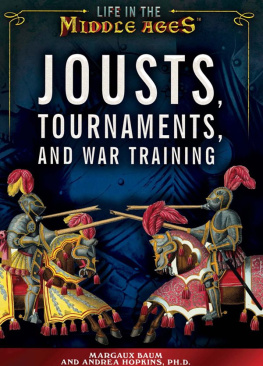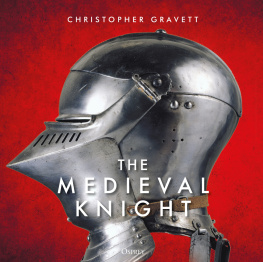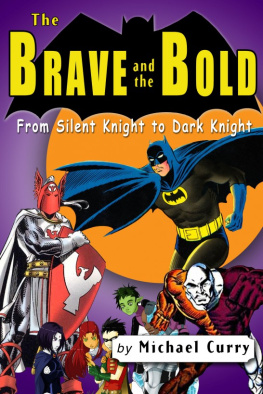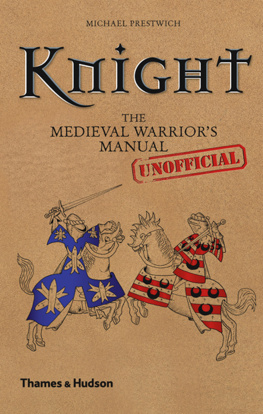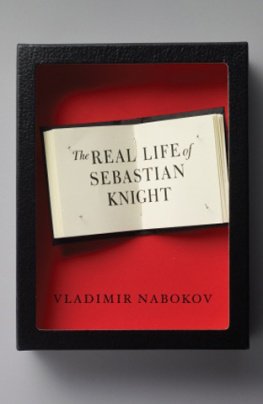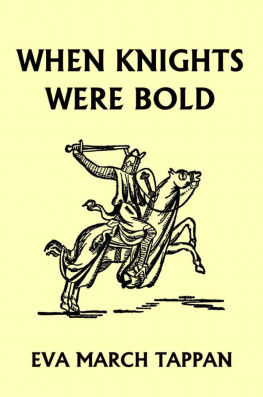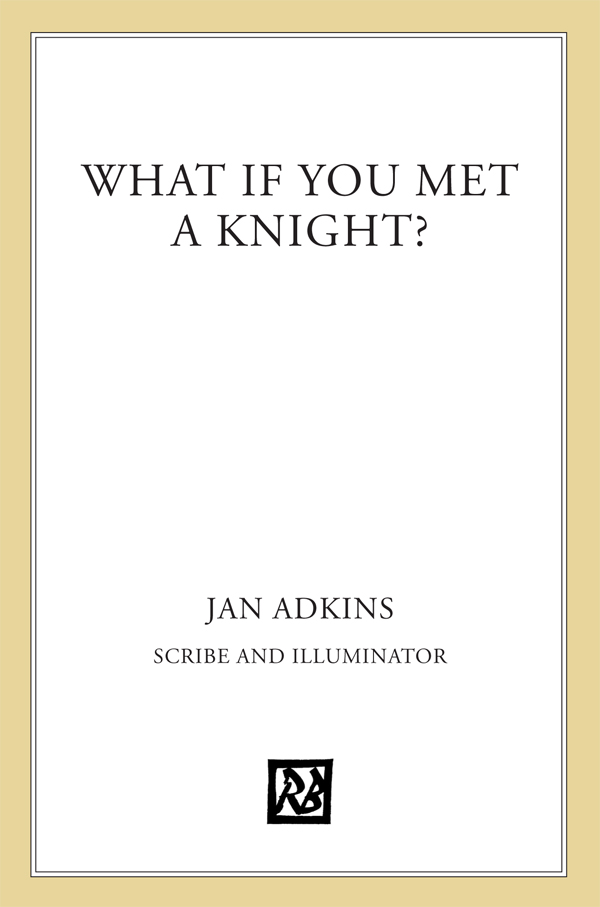Contents
Guide

The author and publisher have provided this e-book to you for your personal use only. You may not make this e-book publicly available in any way. Copyright infringement is against the law. If you believe the copy of this e-book you are reading infringes on the authors copyright, please notify the publisher at: us.macmillanusa.com/piracy.
this book is for my knights
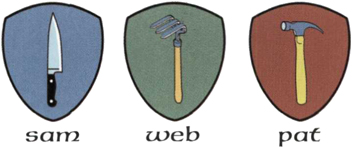
You know all about knights, right? Youve seen plenty of them in movies and books.
Best of all, you know about King Arthur and the Round Table at Camelot, with seats for the best knights in the world: Sir Lancelot, Sir Gawain, Sir Tristan, Sir Bors, and a lot of other handsome guys with long, curly hair wearing polished armor. They were loyal, brave, trustworthy, kind, fair, pure of heart, and cram-full of chivalry, the code of knightly conduct. Very nice fellas. Their business was adventure.
There was plenty of adventure to go around. The knights carried swords as big as parking meters and toured the countryside on truck-sized horses. They rescued fair maidens, found Holy Grails, put down evil giants, and did some pest controlslaying troublesome dragons.
Often they would meet an evil false knight and challenge the cad to a joust. The jousters would ride to opposite sides of a meadow, then wheel and charge at each other with lances like flagpoles. Whammo! The less virtuous knight went down like a sack of potatoes!
Naturally, those boys had fair ladies of their ownsweet and delicate women in long gowns, veils, and high pointy hats. Normally valiant knights got cow-eyed around ladieswriting poetry, singing under their castle windows, and dedicating spectacular victories to their ladies virtue.
It was generally a good life of outdoor fun and high deeds for dedicated heroes.
Sure, you know all about knights.
For a plain round table, it was more complicated than you might think. There are wild tales about each knight.
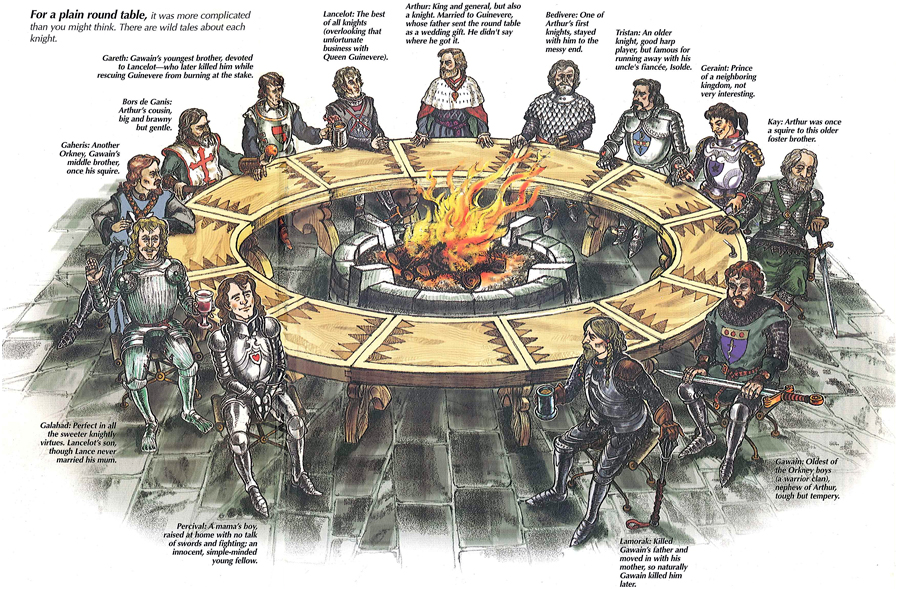
I apologize if Sir Guy of Wareham doesnt appear especially noble or adventurous. He looks upset and irritable. Thats because he has a lot on his mind. Being a knight could be a dismal job. A real knight (the word comes from Old English cniht, meaning servant) had real work to do and a lot of mouths to feedand trouble could ride over the hill at any moment.
Forget jousts and quests and dragons. Sir Guy was caught in the middle between warlords and peasants. When he was made a knight, his warlord assigned a big piece of land to him. As rent, the lord requires that Sir Guy supply a quantity of armed men, gold, work on the lords projects, and food every year.
Guy has hundreds of peasant families living on his land. He keeps them safe from bandits and raiders, and he manages the land (really a vast farm). In turn, the peasants give Guy part of their crop, a number of days of work, andwhen the warlords act upthey become soldiers for a certain number of days.
This arrangement is part of feudalism. Complicated? It was Guys headache, season by season, to figure out how to supervise his peasants, how to satisfy his warlord, what crops to plant, when to harvest, how much to train his soldier-farmers, and how to bring in enough food and firewood to last through the winter. But Sir Guy was worried about more than that.

Force majeure greater forceis the only law. If other lords or knights want Sir Guys land or castle, their raiders could strike without warning.
Sickness has been reported in one of Sir Guys villages. No one knows how illness spreads or what to do about it. Doctors are useless; they have no medicine that prevents or cures disease. Often, they make it worse. The sickness in the village could be a mild fever. Or it could be the dreaded Black Plague. Sir Guy knows that just one of Europes many plagues killed hundreds of thousands, maybe millions. Hes worried.
Sir Guy doesnt have long, curly hair because he has fleas, just like everyone else.
Late in the day, he may be a little muddled. This is because he drinks gallons of ale and wine. Most of the water supply is infected by human and animal poop. People who drink plain water die. Tea and coffee from boiled water (a little safer) wont be popular for centuries.
His teeth hurt. He will lose most of them in time. There are no dentists. The only way to fix a toothache is to pull the tooth.
Stand upwind of Sir Guy. He smells. Everyone knows that baths are unhealthy. His woolen outer clothes are never washed, and he sleeps in his linen underwear for a week at a time.
Sir Guy owes money. His suit of armor and his weapons cost more than one of his peasants could make in years. He is also bound to provide his farmer-soldiers with helmets, shields, and weapons. He needs horses and wagons to move his men and their supplies. Hes had to borrow money to outfit his little army.
Tithing means giving the Church a tenth of all his earnings. This is what a good Christian knight must do. On top of that, the priests are thinking of enlarging the local church. They expect him to pay for it.
Writing it all down might have helped, but Sir Guy probably couldnt read; most knights were illiterate. Their records were kept by scribes or priests.
The Christian Church insists that lending money, like a bank does today, is immoral. Jews could lend money, and they charged interest: To borrow 100 gold coins, Sir Guy paid back 110 gold coins. Sir Guy owes Jewish lenders a fortune. He hates them for not being Christian. They hate him for hating Jews. Its a bad situation.
Sir Guys warlord or even (oh, no!) his king might visit his castle. Dozens of officials, priests, wives, children, servants, and courtiers (people who loaf around noble courts) would arrive with him. Sir Guy would be expected to provide food, wine and ale, rooms, beds, and entertainment for all of these houseguests. They could stay for weeks. The visit could ruin Sir Guy.
Edith is pregnant. Sir Guy married Edith for her dowry (a wedding gift from her family)land that bordered his lands. His warlord and the peasants are pleased: They want him to have a son to take over the family lands. But hes learned to like Edith. So many mothers die at childbirth or shortly after. Half of all children die before the age of five. Guy is worried for his wife and his baby.
Sir Guys warlord is bored and has started thinking about holding games for Midsummers Eve. This would require new clothes and traveling to the warlords castle with pregnant Edith. Sir Guy will be expected to bring servants, scribes, priests, and some of his farmer-soldiers (who should have been tending the crops). Sir Guy will be obliged to fight in mock battles. Sometimes the mock battles arent so mock. He will certainly be bruised, perhaps injured, even killed. He hopes the warlord will put it off.
Horses are ridiculously expensive. Theyre great for plowing fields, but theyre delicate and require daily attention. They need specially fitted shoes made by a blacksmith several times a year. As a knight, Sir Guy needs a stable full of horses for war and travel. And stable boys and blacksmiths. He is learning to hate horses.





